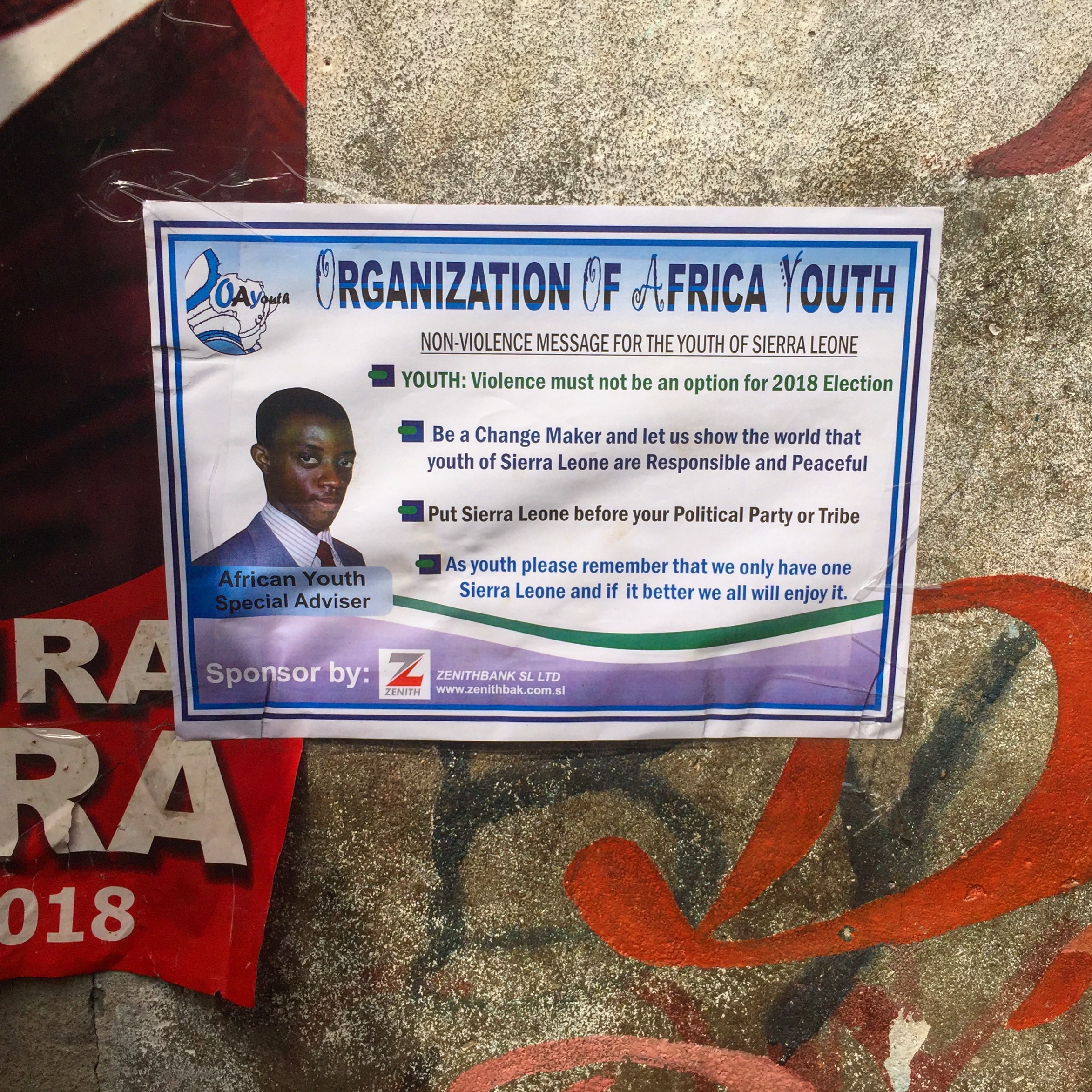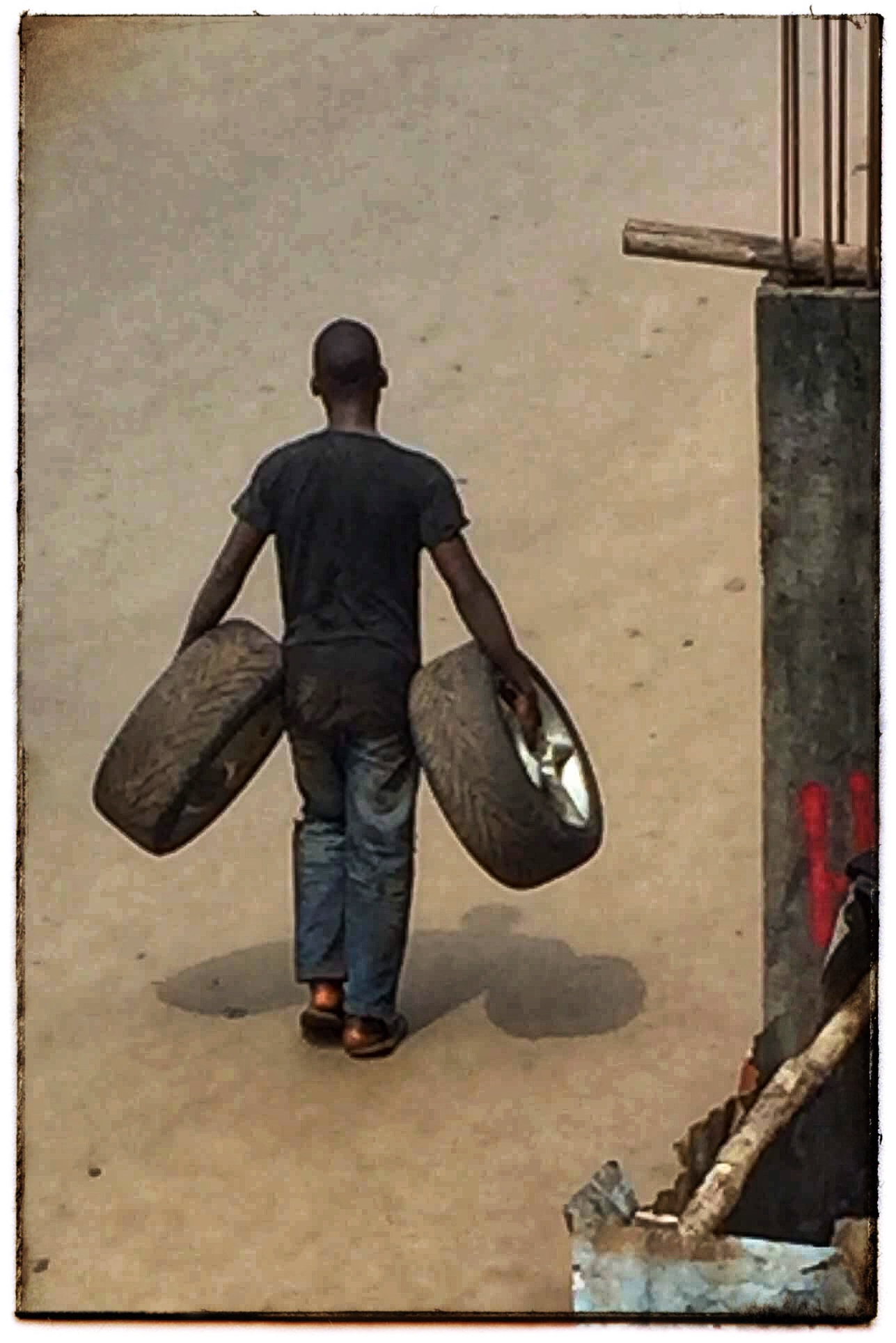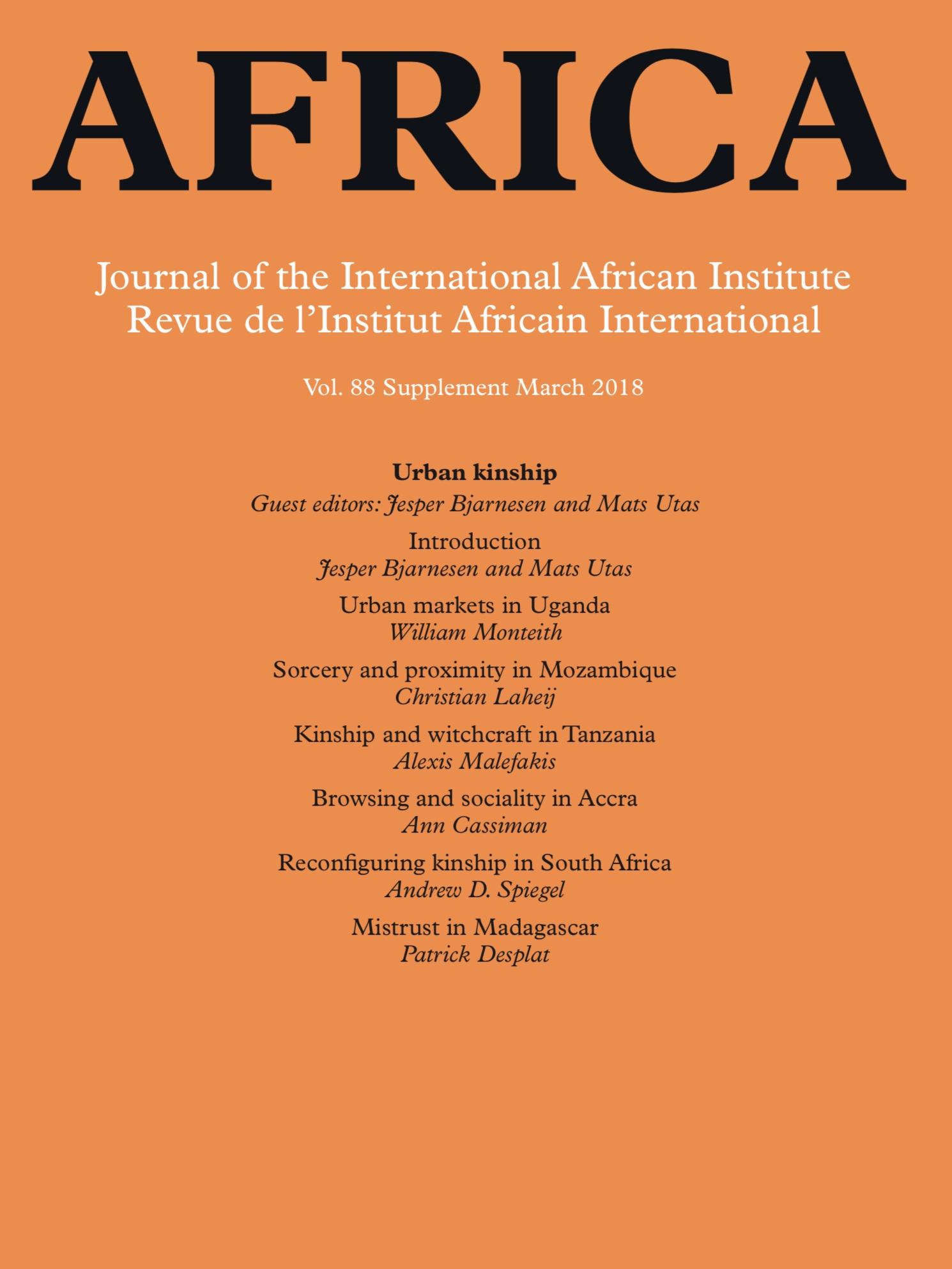Youth at Risk – Youth as Risk
On the evening of the 15th February, six leading presidential candidates for the Sierra Leone presidential elections took to the stage. Over three hours of a live broadcasted debate, each answered questions about their plans for the country. Seen by some as a milestone in Sierra Leone’s post-war political development, the following morning the capital Freetown was abuzz with talk about who had acquitted themselves, who had failed to impress, and what – if anything – this might mean for the election result on the 7th March. In the offices of a youth development organisation, staff enthusiastically discussed the event.
In an adjoining room, I met with their colleague Mohamed*, a man with decades of experience working in the city’s poorest informal communities. What did you think of the debate? I asked. Was it a sign that Sierra Leone’s political scene is moving towards serious discussion of policies, or as one report put it, ‘growing up’?

A poster in Susan’s Bay calls on Sierra Leone’s youth to be peaceful during elections. Photo by the author
Mohamed smiled. Pointing to his colleagues next door, he replied: ‘Each person there is arguing about why their preferred candidate won the debate. What the candidate actually said, how they performed – it doesn’t matter.’ He went on to make a familiar point; voters put party, tribe and personal loyalties ahead of policies. Whilst certainly not new or unique to Sierra Leone, this he contended, meant such debates had little bearing on the electoral outcome. The promise of some candidates to provide free education, surely a positive development for the country’s youth, was just rhetoric, he concluded. In fact, ‘politicians keep the youth uninformed and uneducated so they can use them to their own advantage.’ Continue reading


 Sierra Leone has a new president. And despite being challenged prior to the elections, the two party-system dominated once again. After two five-year terms under Ernest Bai Koroma of All Peoples Congress (APC), the second giant, the Sierra Leone Peoples Party (SLPP), takes over again. Julius Maada Wonie Bio of SLPP defeated APC’s Samura Kamara by gaining 51.8% of the vote in the runoff on March 31, 2018.
Sierra Leone has a new president. And despite being challenged prior to the elections, the two party-system dominated once again. After two five-year terms under Ernest Bai Koroma of All Peoples Congress (APC), the second giant, the Sierra Leone Peoples Party (SLPP), takes over again. Julius Maada Wonie Bio of SLPP defeated APC’s Samura Kamara by gaining 51.8% of the vote in the runoff on March 31, 2018. It is our pleasure and privilege to introduce a special issue of
It is our pleasure and privilege to introduce a special issue of 